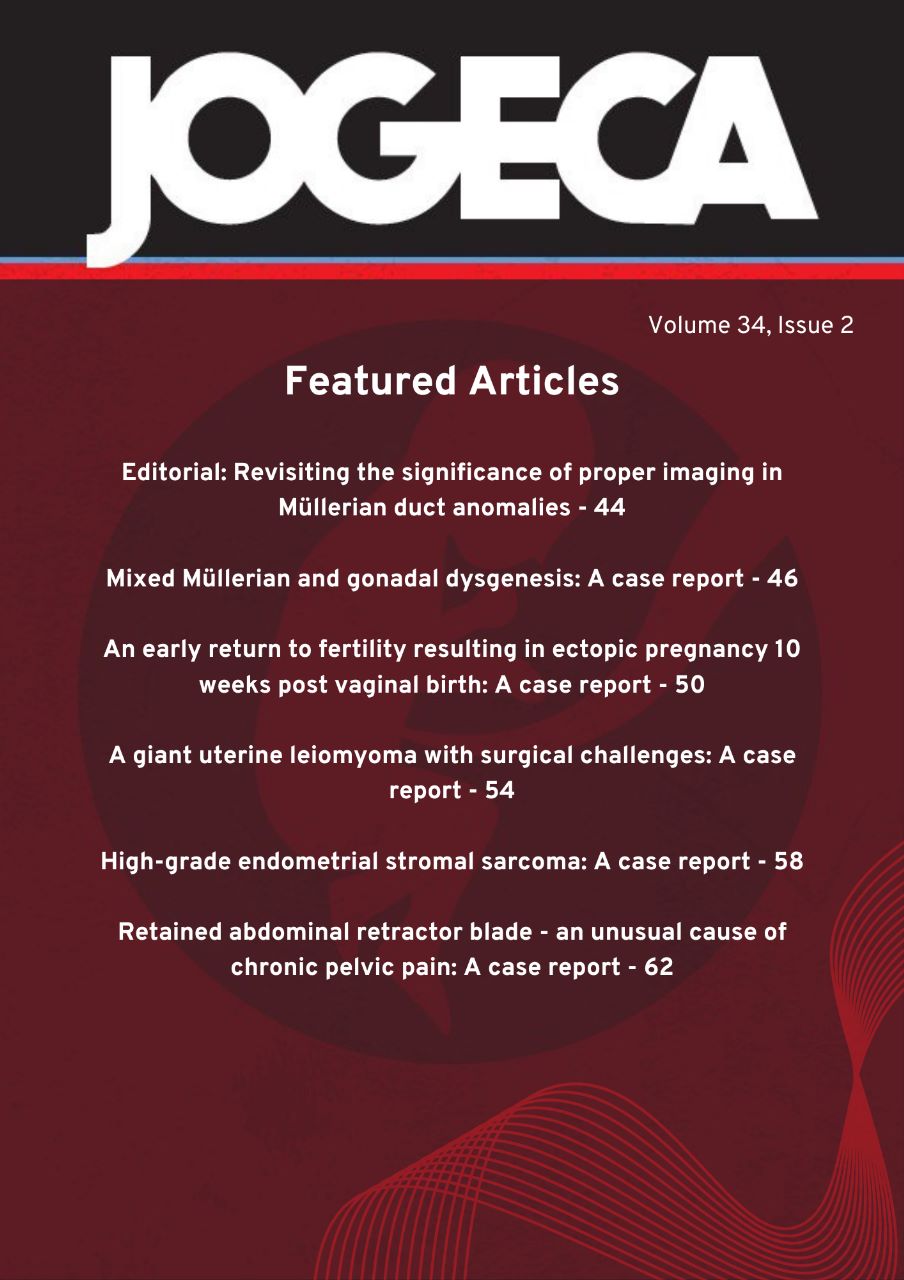MANAGEMENT CONSIDERATIONS IN THE CONTEXT OF MULTIPLE OBSTETRIC COMORBIDITIES - A CASE REPORT
DOI:
https://doi.org/10.59692/jogeca.v36i1.184Keywords:
obstetric comorbidities, Prognostic scoring index, Algorithmic response, Patient compliance, Management considerationsAbstract
Background: Obstetric comorbidities significantly increase the risk of adverse obstetric outcomes
because of their association with complications that can occur suddenly and escalate rapidly.
Case presentation: A morbidly obese 26-year-old primigravida initially presented with first-trimester
bleeding. She consistently declined monitoring and was not adherent to the multidisciplinary treatment
plans despite serial counseling. This state persisted even when she was diagnosed with gestational
diabetes mellitus and preeclampsia. She incurred gross fetal macrosomia and was admitted at term for
induction of labor. By the third prostaglandin, there was overt fetal tachycardia that necessitated an
emergency cesarean delivery. Failed spinal anesthesia necessitated generalization. Access was
impeded by a massive panniculus, necessitating tape retraction to reveal the surgical site. A distressed
apneic baby was delivered, after which she developed an atonic uterus that necessitated uterine brace
suturing and intramyometrial PGF2α. The baby underwent therapeutic hypothermia. Postoperatively, she
was monitored and underwent repeated counseling.
Discussion: This patient was noncompliant to medication and monitoring, she had multiple interacting
comorbidities, and she ended up having an avoidable multiple near-miss. There is a need to develop an
obstetric comorbidity scoring index and validate it locally.
Conclusion: If guided by a logical algorithmic sequence of guided responses, the development and
application of a local risk and comorbidity scoring index may substantively reduce the risk of adverse
obstetric outcomes. This is vital if sustainable development goals are to be realized.
Downloads
Published
How to Cite
Issue
Section
Categories
License
Copyright (c) 2024 The authors.

This work is licensed under a Creative Commons Attribution 4.0 International License.




